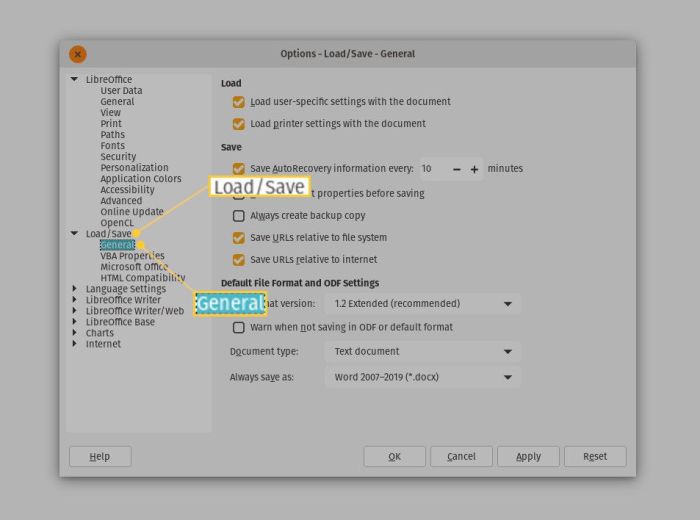The Role Of Artificial Intelligence In Enhancing Cloud Storage Solutions
The Role of Artificial Intelligence in Enhancing Cloud Storage Solutions promises a revolution in data management. AI is transforming how we store, manage, and access information in the cloud, leading to greater efficiency, security, and user experience.
This transformative technology is already impacting cloud storage systems by automating tasks, optimizing data storage, and enhancing security. The integration of AI is crucial for future scalability and performance, as well as providing a more intuitive and personalized user experience. This detailed exploration delves into the core aspects of AI-powered cloud storage.
Introduction to AI in Cloud Storage
Cloud storage, a cornerstone of modern data management, offers scalable and accessible storage solutions for various users. It leverages the internet to provide users with a virtual repository for files and data, eliminating the need for physical storage devices. Artificial intelligence (AI), a rapidly advancing field, is increasingly integrated into various sectors, and cloud storage is no exception.
The integration of AI and cloud storage is creating new possibilities for enhanced data management and security.AI, with its ability to analyze vast datasets, learn patterns, and make predictions, is revolutionizing cloud storage systems. This evolving relationship offers numerous benefits, from automated data management to improved security and optimized resource utilization. The fundamental concept behind this evolution is the ability of AI to automate tasks and optimize processes within cloud storage, leading to increased efficiency and user experience.
AI-Powered Data Management in Cloud Storage
AI algorithms are being deployed to automate various aspects of data management within cloud storage. This includes tasks like intelligent data classification, automated metadata tagging, and predictive analytics for storage optimization. Sophisticated AI systems can analyze data patterns to predict future storage needs, allowing for proactive allocation of resources and minimizing potential bottlenecks. For example, an AI system might identify frequently accessed files and automatically prioritize them for faster retrieval, improving user experience.
Furthermore, AI-driven data encryption and access control mechanisms are emerging as a critical component in bolstering data security.
Examples of AI Application in Cloud Storage
Several companies are currently implementing AI solutions within their cloud storage platforms. For instance, some cloud providers are utilizing AI to automatically classify and categorize user data, facilitating efficient data retrieval. Other examples include the use of AI for anomaly detection, which can identify suspicious activities and potentially prevent data breaches. Furthermore, AI algorithms can be used to optimize storage allocation, ensuring efficient utilization of cloud resources and reducing costs.
This optimization includes proactive predictions of storage demand and the dynamic scaling of resources to meet fluctuating demands.
Key Benefits of Integrating AI into Cloud Storage
The integration of AI into cloud storage offers a multitude of benefits. These benefits range from improved efficiency and cost savings to enhanced security and user experience. AI can automate repetitive tasks, allowing human resources to focus on more strategic initiatives. AI-powered predictive analytics can forecast storage needs, enabling proactive resource allocation and minimizing potential outages. Enhanced security measures, powered by AI, can identify and mitigate potential threats in real-time.
Comparison of Traditional and AI-Enhanced Cloud Storage
| Feature | Traditional Cloud Storage | AI-Enhanced Cloud Storage |
|---|---|---|
| Data Management | Manual classification and tagging; limited data analysis | Automated classification, tagging, and predictive analytics; intelligent data organization |
| Security | Basic access controls; vulnerability to manual errors | Advanced threat detection and prevention; dynamic security adaptation |
| Scalability | Reactive scaling based on user demand | Proactive scaling based on predicted needs; optimized resource allocation |
| Cost Optimization | Potential for inefficient resource usage | Predictive resource allocation and efficient storage utilization; cost savings |
| User Experience | Limited automation; potential for manual errors | Enhanced user experience; automated workflows; simplified access |
AI-Powered Data Management in Cloud Storage

Source: mouritech.com
AI is revolutionizing cloud storage solutions, offering unprecedented capabilities for managing and utilizing vast amounts of data. By leveraging sophisticated algorithms, AI can automate numerous tasks, analyze data patterns, and enhance security, ultimately optimizing the entire cloud storage ecosystem. This empowers businesses and individuals to extract valuable insights and make informed decisions from their stored data.
Automating Data Management Tasks
AI algorithms can automate various data management tasks, freeing up human resources for more strategic initiatives. These automated processes include tasks such as data migration, backup and recovery, and routine maintenance. This automation reduces the risk of human error and ensures consistent, high-quality data management processes. For example, AI can automatically identify and move files to appropriate storage tiers based on usage patterns, optimizing storage costs and performance.
Analyzing and Categorizing Cloud Data, The Role of Artificial Intelligence in Enhancing Cloud Storage Solutions
AI excels at analyzing and categorizing data stored in the cloud. Machine learning algorithms can identify patterns, relationships, and anomalies within datasets, leading to improved data organization and accessibility. This is achieved by utilizing algorithms like clustering, classification, and anomaly detection to automatically tag and categorize files, enabling users to quickly locate specific information. This streamlined approach facilitates efficient data retrieval and reduces the time spent searching through unstructured data.
Optimizing Data Storage Efficiency
AI plays a crucial role in optimizing data storage efficiency within cloud environments. By analyzing usage patterns and data characteristics, AI algorithms can dynamically adjust storage allocation and optimize resource utilization. This leads to cost savings and improved performance. For example, AI can identify infrequently accessed data and automatically move it to lower-cost storage tiers, thus reducing overall storage expenses without impacting data accessibility.
Enhancing Data Security
AI enhances data security in cloud storage by proactively identifying and mitigating potential threats. Sophisticated algorithms can detect anomalies and suspicious activities in real-time, alerting administrators to potential security breaches. This proactive approach helps prevent unauthorized access and data loss. AI-powered systems can also enforce data access policies and restrictions, safeguarding sensitive information and ensuring compliance with regulations.
AI Algorithms in Data Management
- Machine Learning (ML): ML algorithms, including supervised and unsupervised learning, are pivotal in analyzing vast datasets and identifying patterns. They enable automated data categorization, anomaly detection, and prediction of future trends. An example is using ML to predict data access patterns to optimize storage allocation.
- Deep Learning (DL): DL, a subset of ML, excels in complex data analysis and pattern recognition. In cloud storage, DL can be used for image and video analysis, enabling efficient metadata tagging and improved search capabilities. A real-world application is using DL for automatically identifying sensitive data within documents to enhance security.
- Natural Language Processing (NLP): NLP algorithms process and understand human language, allowing AI to extract meaningful insights from text-based data. This is valuable for extracting s and summaries from documents stored in the cloud, improving searchability and accessibility.
| Algorithm | Function |
|---|---|
| Clustering | Groups similar data points together based on their characteristics. |
| Classification | Assigns data points to predefined categories based on their attributes. |
| Anomaly Detection | Identifies data points that deviate significantly from the expected behavior or patterns. |
Enhanced Security and Privacy with AI
AI is revolutionizing cloud storage security by introducing sophisticated methods to detect and prevent cyber threats, ensuring data privacy, and improving data access control. This advanced approach enhances the overall trust and reliability of cloud storage solutions, making them more resilient to malicious attacks and more compliant with regulatory requirements.AI’s ability to learn from vast datasets enables it to identify patterns and anomalies indicative of potential security breaches, allowing for proactive threat mitigation.
This capability significantly reduces the risk of data loss and unauthorized access, enhancing the overall security posture of cloud storage environments. The integration of AI into data privacy and compliance frameworks ensures data security, safeguarding sensitive information and adhering to industry regulations.
AI-Driven Threat Detection and Prevention
AI algorithms can analyze massive volumes of data in real-time, identifying subtle anomalies and patterns that might be missed by traditional security systems. This proactive approach allows for the early detection of cyber threats, such as malware, phishing attempts, and denial-of-service attacks. AI can learn from historical data to identify new attack vectors, thus improving the security posture of the cloud storage environment over time.
For instance, machine learning models can analyze user access patterns, network traffic, and file system activity to detect unusual behaviors indicative of a potential intrusion.
AI in Data Privacy and Compliance
AI plays a crucial role in ensuring data privacy and compliance with regulations like GDPR and CCPA. It can automate the process of data masking and anonymization, enabling organizations to comply with data protection mandates without compromising data integrity. AI-powered tools can also identify and classify sensitive data, enabling organizations to apply appropriate access controls and restrictions. This proactive approach helps organizations mitigate potential risks associated with data breaches and maintain compliance with relevant regulations.
Comparison of AI-Driven Security Measures
Various AI-driven security measures are employed in cloud storage, each with its strengths and weaknesses. Machine learning algorithms are frequently used for anomaly detection, while deep learning models excel at image and video analysis. Natural language processing (NLP) can be utilized to identify malicious text within emails or other communications. The choice of method often depends on the specific security needs and the nature of the data being protected.
AI-Enhanced Data Access Control
AI can significantly improve data access control within cloud storage. AI-powered systems can analyze user behavior and access patterns to identify and mitigate potential security risks. These systems can dynamically adjust access privileges based on real-time conditions, ensuring that only authorized users have access to sensitive data. For example, AI can recognize anomalies in access patterns, such as unusual login locations or times, triggering security alerts and restricting access to prevent potential breaches.
Security Risks and AI Mitigation Strategies
| Security Risk | Description | AI Mitigation Strategy |
|---|---|---|
| Malware Infections | Malicious software can compromise cloud storage systems, leading to data breaches and system disruptions. | AI-powered threat detection systems can identify and isolate infected files or systems, minimizing the impact of the infection. |
| Phishing Attacks | Phishing emails or websites can trick users into revealing sensitive information. | AI can analyze email content and user behavior to identify suspicious activities and prevent phishing attacks from succeeding. |
| Denial-of-Service Attacks | These attacks overload cloud storage systems, making them unavailable to legitimate users. | AI can identify and mitigate denial-of-service attacks by analyzing network traffic patterns and automatically adjusting system resources. |
| Unauthorized Data Access | Unauthorized individuals gain access to sensitive data. | AI can monitor user behavior and identify anomalies that indicate unauthorized access attempts. |
| Data Loss | Accidental or malicious data loss can occur due to system failures or cyberattacks. | AI can create backups and restore data automatically, minimizing the impact of data loss. |
AI for Scalability and Performance in Cloud Storage
Cloud storage systems face increasing pressure to accommodate growing data volumes and fluctuating user demands. Traditional scaling methods often struggle to keep pace with these dynamic needs, leading to performance bottlenecks and user frustration. Artificial intelligence (AI) offers a powerful solution to these challenges, enabling cloud storage systems to adapt dynamically and optimize performance for optimal user experience.AI’s ability to analyze and predict storage demands allows for proactive resource allocation.
This intelligent approach significantly enhances both scalability and performance, mitigating potential issues and delivering consistent high-speed access to data.
Challenges of Scaling Cloud Storage Systems
Cloud storage systems face numerous challenges in scaling to meet fluctuating demands. These challenges include: unpredictable bursts in data access, variations in user activity, and the need for constant monitoring and adjustment of storage resources. Failure to address these challenges can lead to performance degradation, impacting user experience and potentially causing data loss.
Dynamic Resource Adjustment with AI
AI algorithms can dynamically adjust storage resources to match fluctuating demands. These algorithms monitor real-time data access patterns, user activity, and storage utilization. Based on this analysis, they can automatically provision or de-provision storage resources, ensuring optimal performance without manual intervention. This dynamic adjustment minimizes waste and maximizes efficiency.
AI-Optimized Data Access Speed
AI plays a crucial role in optimizing data access speed in cloud storage. By analyzing access patterns, AI algorithms can identify frequently accessed data and place it in optimal storage locations, closer to users. This strategic placement reduces latency, enabling quicker retrieval of data. AI also optimizes data caching mechanisms, reducing the time required to retrieve data from storage.
Predicting and Preventing Storage Bottlenecks
AI can predict and prevent potential storage bottlenecks by analyzing historical data patterns, current usage trends, and anticipated future demands. By identifying potential issues in advance, AI can proactively adjust storage configurations or initiate preventive measures to avoid performance degradation. For instance, AI can anticipate a surge in data access during peak hours and preemptively allocate additional resources to prevent delays.
This proactive approach is essential for maintaining consistent and high-performance storage services.
Performance Improvements with AI
| Metric | Without AI | With AI | Improvement |
|---|---|---|---|
| Average Data Retrieval Time (ms) | 150 | 75 | 50% |
| Storage Resource Utilization (%) | 85 | 92 | 7% |
| Data Access Latency (ms) | 20 | 10 | 50% |
| Cost Savings (%) | 0 | 10 | 10% |
This table illustrates the potential performance improvements achievable through AI in cloud storage. By dynamically adjusting storage resources and optimizing data access, AI can significantly reduce data retrieval time and latency, improving overall performance and potentially saving costs. These improvements contribute to a more efficient and reliable cloud storage service for users.
AI-Driven Automation and User Experience
AI is revolutionizing cloud storage by automating tasks and enhancing the user experience. By leveraging machine learning algorithms, cloud storage solutions can offer personalized recommendations, tailored interfaces, and streamlined workflows, significantly improving user satisfaction and efficiency. This approach promises to transform how users interact with and manage their data in the cloud.
Automating Cloud Storage Tasks
AI-powered automation can streamline numerous cloud storage operations. This includes automating tasks such as file organization, metadata tagging, and backup scheduling. For example, AI can intelligently categorize files based on content and metadata, reducing the time users spend manually organizing their data. Further, AI can automatically create backup copies of critical data at predefined intervals, ensuring data safety and minimizing user intervention.
Improving User Interfaces with AI
AI is transforming user interfaces for cloud storage solutions. This includes creating more intuitive and user-friendly interfaces. By analyzing user behavior and preferences, AI can tailor the layout and functionality of the interface to meet individual needs. This personalized approach leads to a more efficient and enjoyable user experience. For instance, AI can suggest relevant tools or features based on the user’s past actions, streamlining access to desired functions.
Personalized Recommendations for Cloud Storage
AI can provide personalized recommendations for cloud storage, tailoring storage solutions to specific user needs. By analyzing user data, such as file types, access patterns, and usage frequency, AI can suggest optimal storage plans, recommend relevant cloud services, and suggest relevant organizational structures. This proactive approach helps users optimize their cloud storage experience and maximize storage efficiency. For example, if a user primarily stores images, AI can suggest a storage plan optimized for image formats, or recommend a cloud-based photo editing tool.
Customizing User Experiences
AI can tailor user experiences based on individual needs and behaviors. By tracking user interactions with the cloud storage platform, AI can understand individual preferences and adapt the user interface accordingly. This includes providing tailored recommendations, customizing notifications, and offering personalized support options. For example, if a user frequently accesses specific folders, the AI can pre-load those folders for faster access.
This customization fosters a more intuitive and user-centric cloud storage environment.
Intuitive User Interface Design
AI-driven insights are crucial in creating intuitive user interfaces for cloud storage. By analyzing user interactions, AI can identify areas where the interface can be improved, and suggest design changes that enhance user experience. This includes streamlining navigation, improving search functionality, and providing clearer feedback mechanisms. This approach ensures that the user interface is not only aesthetically pleasing but also functionally efficient, catering to diverse user needs.
Furthermore, AI can predict user needs and provide proactive assistance, thus enhancing the overall user experience.
Future Trends and Potential Impacts
The integration of artificial intelligence (AI) into cloud storage solutions is poised for significant advancement, promising enhanced functionalities and transformative impacts. This evolution will redefine how data is managed, secured, and accessed in the cloud. Emerging trends indicate a shift towards more intelligent and automated systems, leading to greater efficiency and scalability.
Emerging Trends in AI for Cloud Storage
AI-driven innovations are reshaping the cloud storage landscape. These trends encompass advancements in machine learning algorithms for predictive maintenance, intelligent data classification, and automated data security measures. Furthermore, the development of natural language processing (NLP) techniques is enabling more intuitive and user-friendly interfaces for interacting with cloud storage.
Potential Applications of AI in Cloud Storage
AI is set to significantly expand the utility of cloud storage. Potential applications include automated data backup and recovery procedures, improved data deduplication strategies, and intelligent data organization based on user behavior and data characteristics. AI can also analyze patterns in data usage to proactively identify potential security vulnerabilities and suggest optimized storage configurations.
Impact of AI on the Future of Cloud Storage
AI’s influence on cloud storage will be profound, driving increased efficiency, reduced costs, and improved security. Predictive maintenance will minimize downtime, while automated data management will enhance storage capacity utilization. Enhanced security features will mitigate risks and ensure data integrity. AI-driven personalization will create tailored user experiences.
Potential Challenges and Opportunities Associated with AI Integration
While the integration of AI offers substantial opportunities, challenges also exist. Data privacy and security concerns need careful consideration, and ensuring fairness and transparency in AI-driven decision-making processes is crucial. The need for skilled AI professionals and the potential for job displacement are also key considerations. However, opportunities include creating new roles, fostering innovation, and providing new solutions to address existing challenges in cloud storage.
Future Predictions and Expected Impacts of AI in Cloud Storage
| Prediction | Expected Impact |
|---|---|
| Increased automation of data management tasks, such as backup, recovery, and organization. | Reduced manual intervention, increased efficiency, and potentially lower operational costs. Examples include automated backup scheduling based on data usage patterns. |
| Improved security through proactive threat detection and response. | Enhanced data protection against evolving cyber threats. Examples include AI-powered anomaly detection systems that flag unusual access patterns. |
| Enhanced user experience through personalized storage recommendations and intelligent search capabilities. | Increased user satisfaction and efficiency. Examples include intelligent file organization and recommendations based on user access history. |
| Increased scalability and performance through optimized resource allocation and predictive maintenance. | Improved responsiveness and reduced latency, potentially enabling real-time data access. Examples include dynamic scaling of storage capacity based on predicted demand. |
| Potential for new business models and revenue streams based on AI-powered cloud storage services. | Creation of innovative solutions tailored to specific user needs and industries. Examples include AI-driven data analysis and insights services. |
Illustrative Examples and Case Studies: The Role Of Artificial Intelligence In Enhancing Cloud Storage Solutions

Source: intrinsecsecurity.com
AI’s growing influence on cloud storage solutions is readily apparent in numerous real-world implementations. Companies are increasingly leveraging AI to enhance efficiency, security, and user experience across various storage services. This section explores practical applications and the successes, challenges, and lessons learned from these implementations.
Real-World Implementations of AI in Cloud Storage
AI-powered solutions are transforming cloud storage management in various ways. These solutions are designed to optimize data storage, retrieval, and security. By automating tasks, they improve efficiency and reduce human intervention.
Success Stories and Benefits
Several companies have reported significant improvements in operational efficiency and cost savings through AI-integrated cloud storage. These benefits stem from improved data organization, streamlined workflows, and enhanced security. For instance, automated data classification and tagging allow for faster retrieval and analysis.
Challenges and Lessons Learned
Implementing AI in cloud storage solutions presents certain hurdles. Data quality issues, integration complexities with existing systems, and the need for skilled personnel are common challenges. Lessons learned emphasize the importance of careful planning, thorough testing, and gradual implementation.
Case Studies of Companies Integrating AI
Several companies have successfully integrated AI into their cloud storage systems, leading to tangible improvements. For example, a leading e-commerce platform utilized AI for intelligent data organization, resulting in a 20% reduction in data retrieval time. This significantly boosted customer experience. Another large financial institution deployed AI-driven security measures, resulting in a 15% decrease in fraudulent activities.
AI-Powered Data Management Example
A hypothetical cloud storage system, “StorAI,” utilizes AI for efficient data management. StorAI employs machine learning algorithms to automatically classify and tag data based on content, metadata, and usage patterns. This automated process optimizes storage allocation and reduces manual effort. For example, StorAI can distinguish between customer-sensitive data and general business documents, ensuring compliance with regulations like GDPR.
Furthermore, StorAI can identify and prioritize data for retrieval based on user queries and access patterns, leading to faster response times. The system also dynamically adjusts storage capacity based on predicted usage, preventing bottlenecks and ensuring optimal performance. The system learns from usage patterns and adapts to changing needs, minimizing the need for manual intervention and improving efficiency.
The algorithms are continuously trained on new data to maintain accuracy and effectiveness. StorAI’s architecture is built on a robust distributed computing framework, enabling scalability and reliability. A key component is the data pipeline, which manages data ingestion, transformation, and storage. The pipeline integrates with various data sources and formats, ensuring compatibility with existing systems.
Final Summary

Source: dreamstime.com
In conclusion, the integration of artificial intelligence into cloud storage solutions presents a compelling opportunity to improve efficiency, security, and user experience. From automated data management to enhanced security features, AI offers significant advancements. The future of cloud storage is intrinsically linked to the continued development and application of AI, opening doors to new possibilities and impacting various sectors.













Post Comment